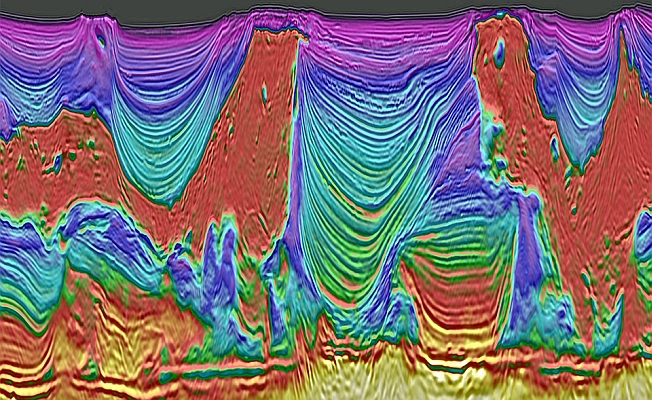The TatukGIS Developer Kernel has been used to develop the new TreeGIS desktop 3D GIS front-end to the popular i-Tree urban forestry inventory and analysis tool. i-Tree is developed by the USDA (U.S. Department of Agriculture) Forest Serviceto help communities strengthen their urban forest management and advocacy efforts by quantifying the structure of community trees and environmental services the trees provide. i-Tree is used by thousands in communities located around the world to plan and manage urban forests. Besides i-Tree, TreeGIS can be easily modified to incorporate any urban forestry inventory.

While i-Tree provides wonderful tools for gathering and reporting information about urban forests, it includes essentially no tools for mapping this wealth of information or to enable users to easily look at a lot of information simultaneously. TreeGIS seamlessly fulfills this gap. Using the TatukGIS DK, it was easy to develop an interface to allow users to label trees in an infinite number of ways, view tree attributes, select trees, and view summary information about selected trees.
A particularly nifty feature of TreeGIS in regards to i-Tree is the ability to display the crown diameter of individual trees. Essentially this takes a one dimensional feature (tree location) and makes it two dimensional, enabling an easy answer to the question ‘Where are the trees and how will they effect everything around them?’
Taking advantage of the TatukGIS DK support for 3D mapping, TreeGIS displays trees and surrounding terrain and buildings in three dimensions with just a click of a button. One of the standard i-Tree databases contains all of the attributes required to display trees in 3D: tree height, crown height, height to crown, crown width, and stem diameter. This ability, coupled with user-adjustable lighting effects, allows users to simulate different tree planting scenarios and the ultimate effects to wallet-wielding decision-makers.
Though not yet ported to iOS or Android, TreeGIS users can easily share their GIS data using GoogleMaps, BingMaps, or GoogleEarth with anyone with an iPhone or Android device. This simple, yet powerful, functionality gives great flexibility to the end-user.
As a DK-developed application, TreeGIS users can connect to (or store their tree data in) any TatukGIS-compatible database (Access, SQL Server, Oracle, Interbase/Firebase, Postgres, SQLite, IBM Informix, IBM DB2, MySQL, Sybase, ADV, & SAPD) and enterprise GIS database layer format (ArcSDE vector & raster, Geomedia SQL Server Spatial, Geomedia Oracle Object Model, IBM DB2 Spatial Extender, IBM Informix Spatial Datablade, MapInfo SpatialWare, Microsoft Spatial (Katmai), Oracle Spatial, Oracle Georaster, Oracle TIN, Oracle Point Cloud, PostGIS Spatial, Sybase SQL Anywhere Spatial, TatukGIS PixelStore). The speed, power, flexibility, and simplicity of SQL layers on SQLite is particularly appreciated.
TreeGIS is unique in the i-Tree market, with few competitors. TreeGIS developer Brian Brown explains “the nearest competitor to TreeGIS is a solution based on ArcGIS Server, whereas we believe a desktop solution provides i-Tree users more flexibility and greater opportunity to leverage i-Tree tools. Never-the-less, the TatukGIS DK for ASP.NET edition gives us the possibility to also offer TreeGIS as an ASP.NET web server solution in the near future.”
TreeGIS is developed and owned by Mr. Brown’s company, TatukGIS Consulting (legally unrelated to TatukGIS), located in Dubuque, Iowa. Brown describes the TatukGIS object model as “clean, straightforward, fast, and powerful”, adding that (with the TatukGIS DK) “you don’t have to go through 12 interfaces to get to the object you need, you can just use the object. Fortunately the licensing is also reasonable and affordable.” TreeGIS is developed using the TatukGIS DK.VCL edition with the Embarcadero Delphi development environment.
For more about TreeGIS, or to get a trial version, visit the TatukGIS Consulting web site at www.tatukgisconsulting.com.
For more about the TatukGIS Developer Kernel visit www.tatukgis.com.
Source: GISCafé






